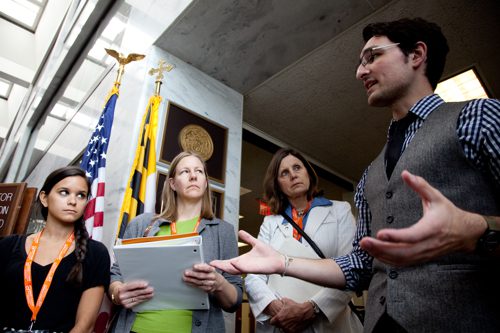By Rev. Dr. Jean Hawxhurst
“By contrast, the fruit of the Spirit is love, joy, peace, patience, kindness, generosity, faithfulness, gentleness, and self-control.” Galatians 5:22 (NRSV)
Several years ago, while I was attending a World Council of Churches event, I met a wonderful Orthodox Christian woman, and we spent some time sharing our faith with each other. The conversation moved to ordination and how our expressions of Christianity differ so strongly on whether or not women can be clergy. I asked why she had never pushed for ordination. Her response was gentle but firm. She explained that if I was going to be involved in ecumenical ministry, I was going to need to learn that my assumptions might sometimes be wrong. She did not believe women should be ordained, and I needed to understand and respect that.
I learned an important lesson in ecumenical civility that day. I still strongly believe women who are called of God should be able to enter vocational ministry. I’m sure my friend still believes they should not. But what happened between us transcended those opinions. If we are Christian, we are called to live out of the fruits of the Spirit. We are called to be different in how we interact with others. Call it kindness, call it generosity of spirit, or call it civility—it is the same thing. It’s the acceptance that all of us see through a dim lens today, and we won’t understand the mysteries of our differences until we are given the gift of seeing them through God’s lens. In the meantime, faith asks us to treat people with whom we disagree with patience, kindness, generosity and self-control, like my friend did for me.
John Wesley, the founder of the Methodist movement, said it this way:
“Every wise man [sic] … will allow others the same liberty of thinking which he desires they should allow him; and will no more insist on their embracing his opinions, than he would have them to insist on his embracing theirs. He … only asks him with whom he desires to unite in love that single question, ‘Is thy heart right, as my heart is with thy heart?’” (John Wesley, “On Catholic Spirit”)
All major world religions have a form of what Christians call “The Golden Rule.” We all live our commitments by treating others the way we would like to be treated ourselves. That ethic of reciprocity is missing from many secular interactions today. But people of faith can show the world a different way. Tomas Spath and Cassandra Dahnke, founders of the Institute for Civility in Government believe that “civility is claiming and caring for one’s identity, needs, and beliefs without degrading someone else’s in the process.” This ethical civility is the same thing we try to live in ecumenical ministry. And it is what people of faith are called to in today’s world—maybe more than ever.
We CAN hear, understand, and respect those with whom we disagree as a way of living out what we say we believe. During this Lenten season, may that be our goal with every interaction.
Rev. Dr. Jean Hawxhurst is an ecumenical staff officer for the United Methodist Council of Bishops.



